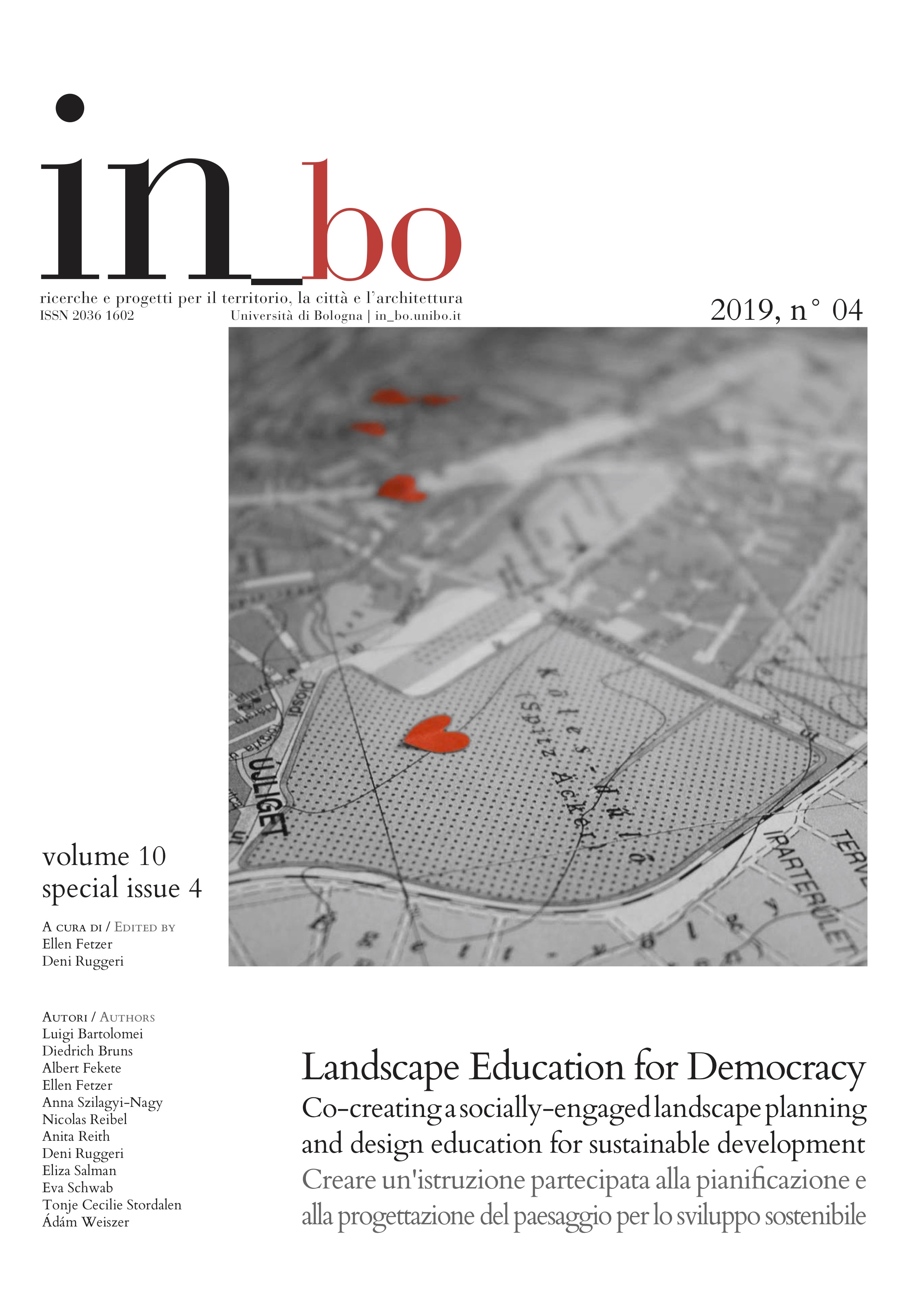Case Studies from the Student Groups Learning for Life? How Participants Evaluate LEDs Relevance and Applicability
DOI:
https://doi.org/10.6092/issn.2036-1602/9847Keywords:
education, planning and design participation, social and political awareness, skills, applicabilityAbstract
A widening economic gap and growing diversity in society, coupled with climate change and deteriorating habitats are pressing challenges which should be tackled in socially and politically-responsible manners by our society at large and planning and design professionals more specifically. Planning and design education however seldom considers its social responsibility and is therefore slow to prepare students to lead democratic, participatory planning, community design and landscape stewardship processes. To fill this gap, the LED sought to offer online courses and intensive workshops to planning and design students. The team wanted the educational experience to be improved and adapted upon through a feedback loop, which involved participants in evaluating its education, relevance and applicability from a student perspective. Analysis of the interviews showed that while the students valued the LED experience and found it transformative both on a personal and professional level, they expressed also doubts about the applicability of their newly acquired skills in future professional offices where participatory practices are often discredited as too time consuming and limiting of the designers’ expertise and creativity.Downloads
Published
2019-09-16
How to Cite
Schwab, E., & Stordalen, T. C. (2019). Case Studies from the Student Groups Learning for Life? How Participants Evaluate LEDs Relevance and Applicability. IN_BO. Ricerche E Progetti Per Il Territorio, La Città E l’architettura, 10(4), 44–51. https://doi.org/10.6092/issn.2036-1602/9847
Issue
Section
Invited Speakers
License
Copyright (c) 2019 Eva Schwab, Tonje Cecilie Stordalen
Copyrights and publishing rights of all the texts on this journal belong to the respective authors without restrictions.
This journal is licensed under a Creative Commons Attribution-NonCommercial 4.0 International License (full legal code).
See also our Open Access Policy.
Metadata
All the metadata of the published material is released in the public domain and may be used by anyone free of charge. This includes references.
Metadata — including references — may be re-used in any medium without prior permission for both not-for-profit and for-profit purposes. We kindly ask users to provide a link to the original metadata record.







